Photo Gallery
Attitude Pictures have put together this short video starring three inspiring young people who have lived experience of psychosis.
They are talking about their journey and what has helped them in their recovery and were very courageous in doing so.
Great to see the narratives of our young people getting out to the mainstream to demystify and normalise the experiences of psychosis in young people.
Also featuring Senior Clinical Psychologist Simon Judkins from Auckland.
This was aired on TV1 on Sunday 21st September 2016.
The following link will take you through to the Attitude Live website.
Information for family friends and whanau:
Supporting someone who is experiencing psychosis is a really important responsibility and it can be difficult at times.
Barriers to communication:
Sometimes there can be particular barriers to communication, such as a person’s thinking being muddled, difficulties with attention and concentration, a tendency to isolate, high levels of distress, and sometimes they may distracted by their experiences.
It is not possible to get it right every time, but the following ideas might help with communication:
Supporting recovery:
People who are recovering from psychosis can be very vulnerable to stress initially. To help reduce stress levels and assist recovery:
Try to provide a structured and predictable environment – the recovering person may have problems with sensory overload. To reduce stress, keep routines simple, and allow the person time alone each day. Plan non-stressful, low-key regular daily activities, and keep ‘big events’ to a minimum.
Be supportive and positive. People who have experienced psychosis need frequent encouragement, particularly since self esteem is often fragile. Encourage all positive efforts; express appreciation for a job even half-done because the person’s confidence, initiative, patience and memory may have been undermined.
Help the person set realistic goals. The person may want to try new things, but should work up to them gradually and not take on too much at a time. The point is to avoid excessive stress, so goals should be reasonable, and nagging should be avoided.
Gradually increase independence. It is important for young people to continue with social activities, education and employment if possible. If college or work are not possible, try to keep up social and recreation activities and help the person plan to use their time constructively.
Anticipate the ups and downs of life and try to prepare accordingly. Sometimes just recognizing in advance something that might be stressful and talking about it can help.
Your positive role-modelling can help someone with psychosis remember to manage stress in an acceptable manner.
Stigma and discrimination:
There is a lot of misinformation and misconceptions about psychosis
The best thing you can do is try to educate those around you about psychosis and about early intervention services.
Click on logo below or additional information
Confidentiality:
Like many other health conditions, people who are experiencing psychosis often want this news to be kept private. It is a good idea, therefore, to check with them about who it is OK to share information with.
Similarly, young people sometimes tell our staff things they do not want passed on to their family or friends. While we aim to share all appropriate information openly with close family members, we must respect any request for confidentiality and consider it carefully.
Building trust is a vital part of our work with young people and maintaining confidentiality is central to this. However, if we receive information that leads us to believe there is a serious risk the young person may harm themselves or someone else, we have a duty to pass this on in order to protect everyone involved.
Useful links for friends and family - click on Logos to access service websites:
Early Intervention in Psychosis Training Forum 2017
Save the date: Monday 06th and 07th of November 2017 with a
workshop 8th November
Christchurch
For the programme for the conference please click for day 1
and for day 2

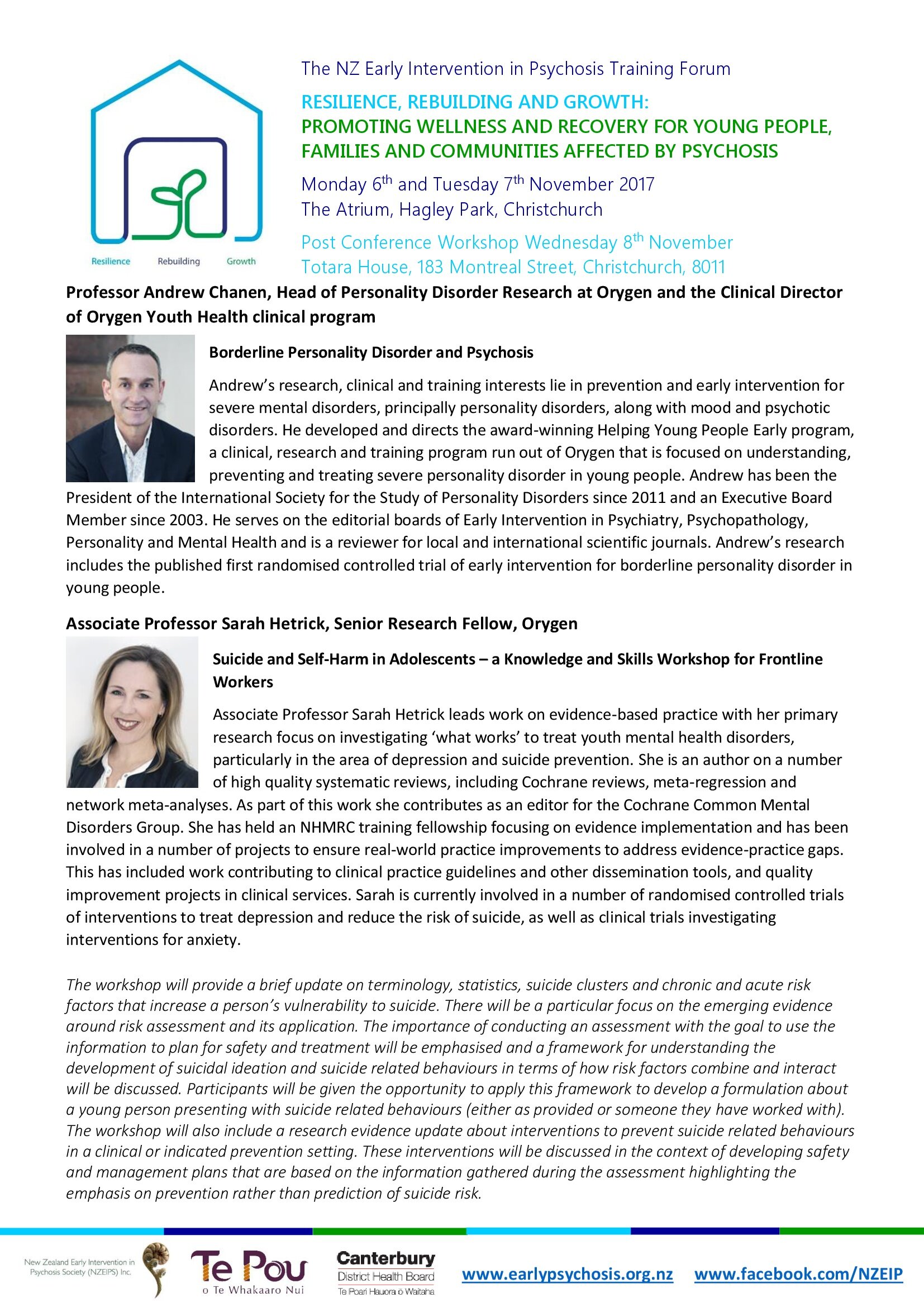
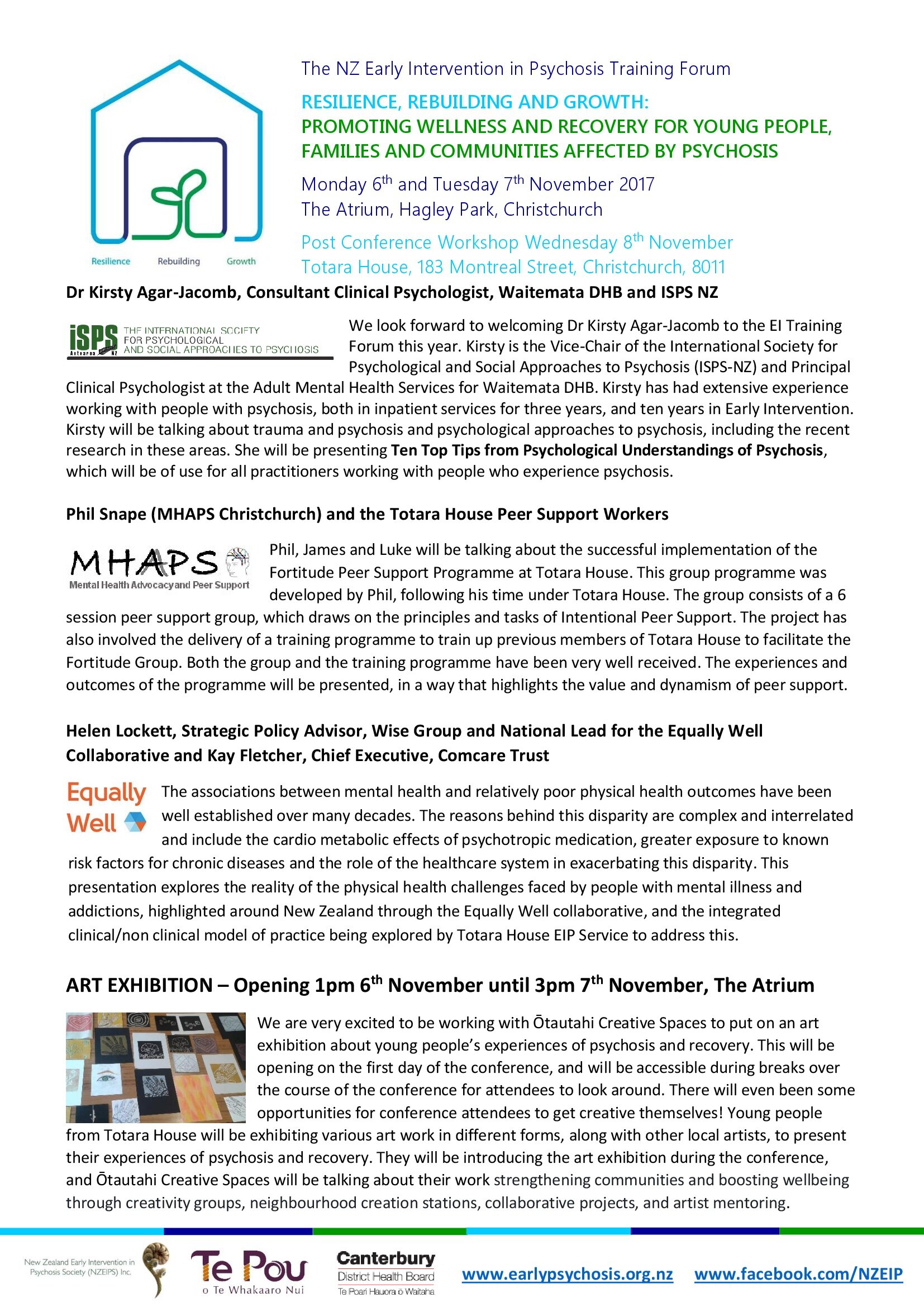
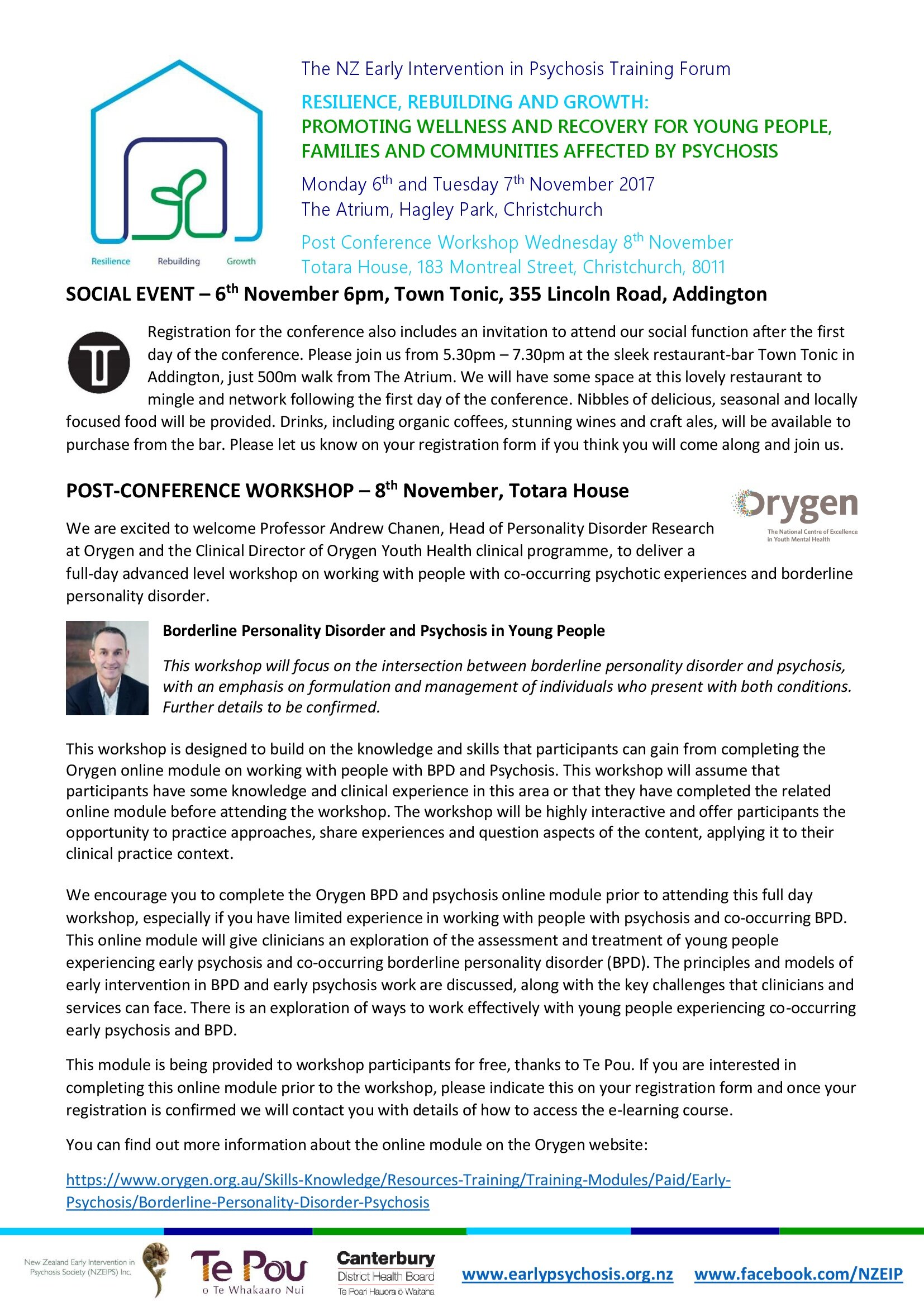
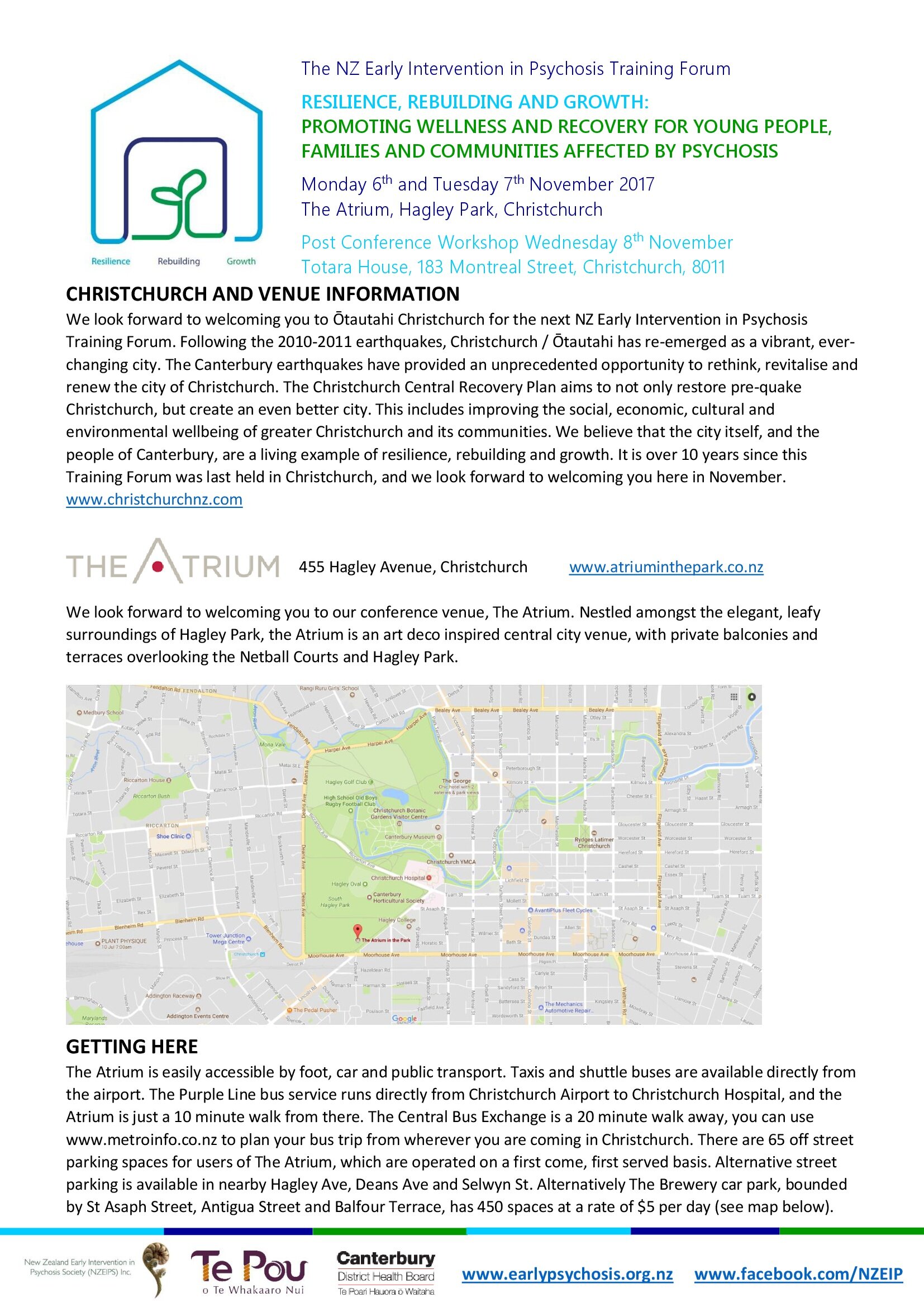
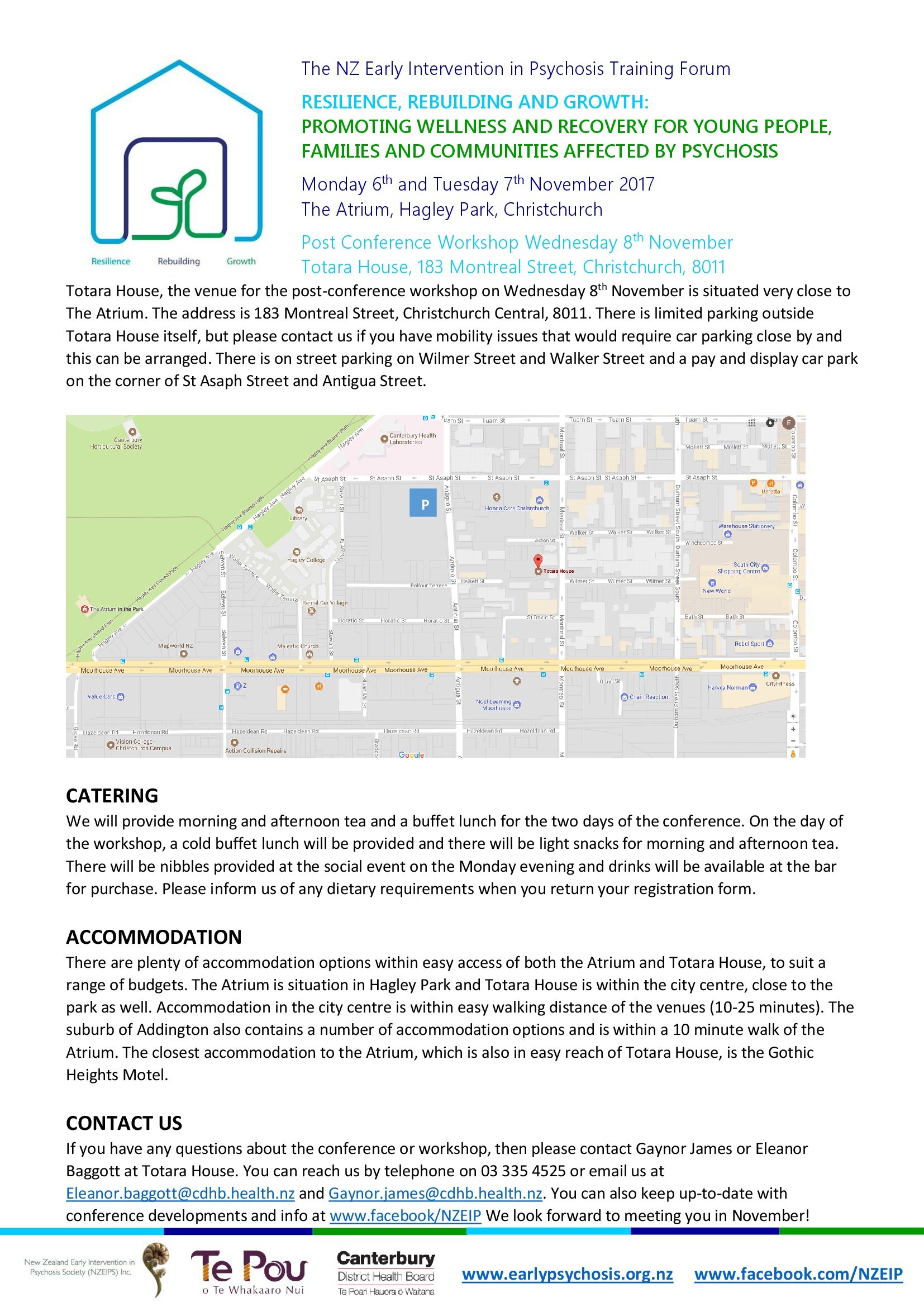
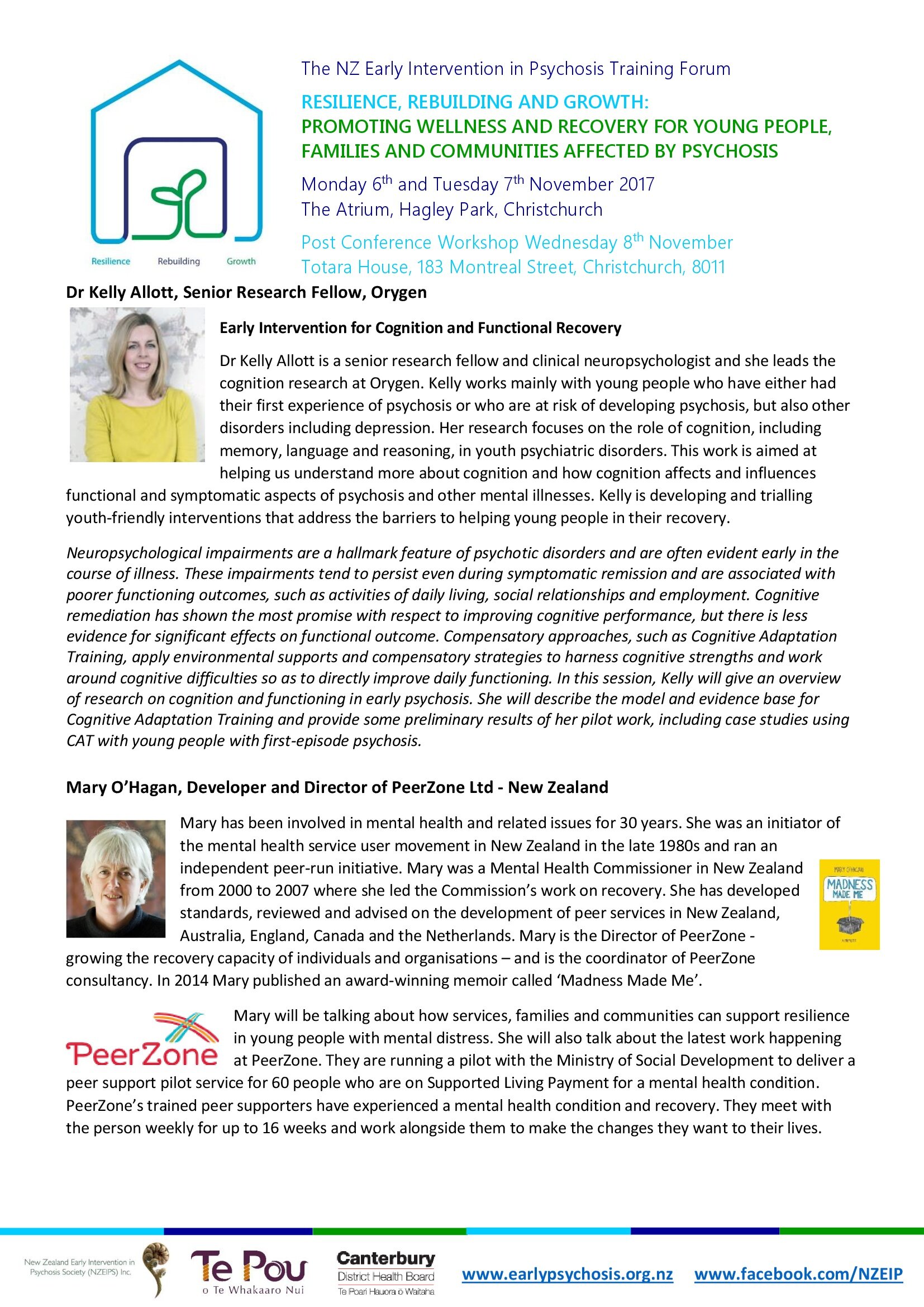
Membership of NZEIPS Executive from November 2015:
TOTAL OF 8 VOTED MEMBER POSITIONS
Voted members 2015 (retire at AGM 2017):
1 - Lindsay Twiss Auckand Psychiatrist
2 - Eleanor Baggott Christchurch Psychologist
3 - Simon Judkins Auckland Psychologist Chair
4 - Holly Wilkins Wellington Psychologist
Voted members 2016 (retire at June 2018 AGM):
5 - Brent Cooper Palmerston North Manager/Social Worker Secretary This email address is being protected from spambots. You need JavaScript enabled to view it.
6 - Ray McEnhill Wellington Manager/Nurse Treasurer
7 - Alastair Cameron Dunedin Aspiring Hse,
8 - Amanda Luckman Wellington Consumer Representative
Coopted members (up to 4 coopted member positions. Retire/renew role at each AGM):
1 - Saskia van Stockum Wellington Researcher
2 - Frank Bristol Whanganui Consumer Representative
3 - Claire Paterson Auckland Psychiatrist
4 - Kaye Tolra Northland Occupational Therapist
Past Chair:
1 - Ian Soosay Auckland Psychiatrist Past-Chair
Observers: (up to 2 observer member positions. Retire/renew role at each AGM. Key focus is on specified defined role or as arranged).
1 - Karyn Black Affinity services Consumer Leader
2 - vacant
Strategic partnerships:
1 - Te Pou
2 - Ian Soosay Auckland Psychiatrist/Lecturer Past-Chair
3 - Frank Bristol Balance/Wanganui Consumer Representative